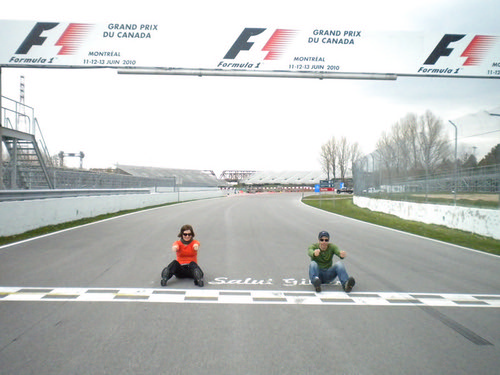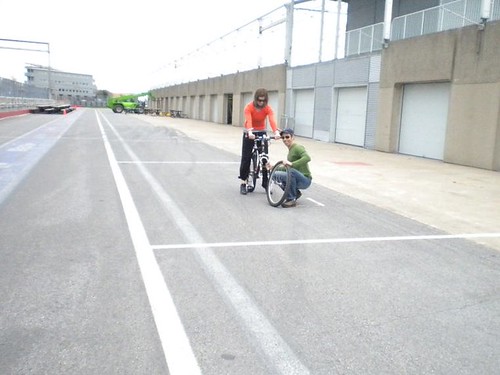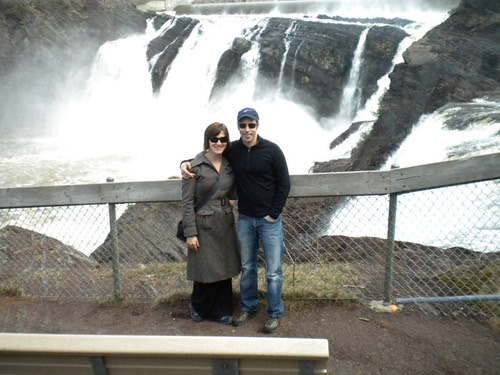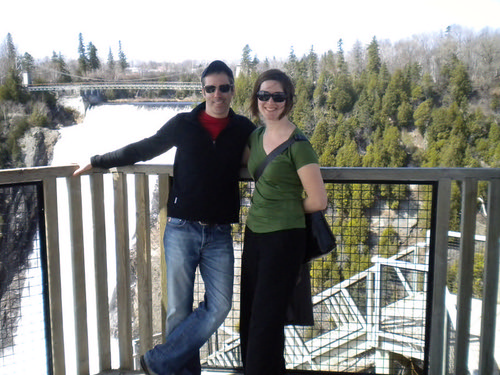How long did it take us to prepare to cruise?
Livia
4/30/2010
We've been invited to give a talk on preparing to cruise at the 2010 Wauquiez Rendezvous in Port Townsend, WA and so I've been doing some reflecting on the issue.
It wasn't until February of 2009 that I was living on the boat, "retired", and working on it. Prior to that Carol (and when I visited I also) worked on "catch up" maintenance to keep on top of the systems and gear we already had. However, for the most part he was either away from the boat, settling into his new role at work or dealing with his move and I was living in Colorado. Using Feb 2009 as our starting to prep date would mean we prepped to cruise in 16 months. Overall I think this is a good ballpark.
That estimate is short because before February 2009 we had already accomplished some important getting ready to cruise tasks: 1) We had sold the house and rid ourselves of everything besides what would fit into a Honda Element, 2) We had taken a 5 day course on our own boat with an instructor and 3) We had read a gazillion books and online discussions.
However, 16 months is an overestimate in a sense because, frankly, we didn't work that hard most of the time. We played. We played A LOT. We went on trips, we climbed, we generally tried to keep preparing to cruise in its appropriate place in life -- "important but not THAT important". I wasn't working on the boat full time during those 16 months because I was also our "director of fun".
There have been a number of times when we made big pushes and boat work dominated our lives for a chunk of time. Just before the VICE (our quick jaunt into the ocean which I should write up at some point), we had a major almost month long push (too long) which involved installing both our bimini and our windvane, getting our electronic navigation and charting systems up, buying a liferaft and epirb (actually 2 x PLBs) and a long list of critical for coastal offshore safety items. But for the most part, it has been a big but not overwhelming part of any given month.
Keeping ourselves balanced within a month is important to me because one thing I learned after grinding myself down for 7 years during grad school was that delay of gratification for later reward is only OK for me at a minor level. I'm no longer willing to work hard for a long time for some ephemeral future. I want balance in my life now, or at least within this month. I use "one month" as a good amount of time to evaluate whether I'm falling back into my rut of delaying fun. Overdoing it is tolerable to some extent as long as I am doing too many fun things.
Plus, why does preparing to cruise have to be the painful part? For some people, on more limited timelines, the prep has to be compressed and so it becomes a necessary evil to be pushed through so that they can have more time to cruise before they have to return. But prepping is *exciting* when you stop and think about it and the more time I give myself to tackle a problem the more I am likely to enjoy it. We have the luxury of time that so many would give so much to have and so we are taking advantage of it.. If I feel like I have time to really understand the problem and to take each stage individually I can enjoy it. If I feel like I'm pushing then I get easily frustrated by the challenges that inevitably arise.
This is another reason we are cruising "around here" for the first 13 months. First of all, we have the luxury of living somewhere which is a world class cruising area and that is enough motivation on its own. But also, it allows us to have a firm date of departure from a dock, while simultaneously providing a steam release valve in the knowledge that most things don't have to be done because we can keep preparing as we go. We can cruise for a while before we decide what type of watermaker we want or the changes we want in the standing rigging.
I keep telling myself these things when I feel myself starting to get sucked into the vortex of cruising preparation freak out. I ask myself "are you having fun?" and usually, despite the stressball I am wrapping myself up into, I am. I ask myself "what happens if this isn't done" and the answer (now that we have new batteries which were our last must-have item) is "we leave June 15 anyways".
- Livia
It wasn't until February of 2009 that I was living on the boat, "retired", and working on it. Prior to that Carol (and when I visited I also) worked on "catch up" maintenance to keep on top of the systems and gear we already had. However, for the most part he was either away from the boat, settling into his new role at work or dealing with his move and I was living in Colorado. Using Feb 2009 as our starting to prep date would mean we prepped to cruise in 16 months. Overall I think this is a good ballpark.
That estimate is short because before February 2009 we had already accomplished some important getting ready to cruise tasks: 1) We had sold the house and rid ourselves of everything besides what would fit into a Honda Element, 2) We had taken a 5 day course on our own boat with an instructor and 3) We had read a gazillion books and online discussions.
However, 16 months is an overestimate in a sense because, frankly, we didn't work that hard most of the time. We played. We played A LOT. We went on trips, we climbed, we generally tried to keep preparing to cruise in its appropriate place in life -- "important but not THAT important". I wasn't working on the boat full time during those 16 months because I was also our "director of fun".
There have been a number of times when we made big pushes and boat work dominated our lives for a chunk of time. Just before the VICE (our quick jaunt into the ocean which I should write up at some point), we had a major almost month long push (too long) which involved installing both our bimini and our windvane, getting our electronic navigation and charting systems up, buying a liferaft and epirb (actually 2 x PLBs) and a long list of critical for coastal offshore safety items. But for the most part, it has been a big but not overwhelming part of any given month.
Keeping ourselves balanced within a month is important to me because one thing I learned after grinding myself down for 7 years during grad school was that delay of gratification for later reward is only OK for me at a minor level. I'm no longer willing to work hard for a long time for some ephemeral future. I want balance in my life now, or at least within this month. I use "one month" as a good amount of time to evaluate whether I'm falling back into my rut of delaying fun. Overdoing it is tolerable to some extent as long as I am doing too many fun things.
Plus, why does preparing to cruise have to be the painful part? For some people, on more limited timelines, the prep has to be compressed and so it becomes a necessary evil to be pushed through so that they can have more time to cruise before they have to return. But prepping is *exciting* when you stop and think about it and the more time I give myself to tackle a problem the more I am likely to enjoy it. We have the luxury of time that so many would give so much to have and so we are taking advantage of it.. If I feel like I have time to really understand the problem and to take each stage individually I can enjoy it. If I feel like I'm pushing then I get easily frustrated by the challenges that inevitably arise.
This is another reason we are cruising "around here" for the first 13 months. First of all, we have the luxury of living somewhere which is a world class cruising area and that is enough motivation on its own. But also, it allows us to have a firm date of departure from a dock, while simultaneously providing a steam release valve in the knowledge that most things don't have to be done because we can keep preparing as we go. We can cruise for a while before we decide what type of watermaker we want or the changes we want in the standing rigging.
I keep telling myself these things when I feel myself starting to get sucked into the vortex of cruising preparation freak out. I ask myself "are you having fun?" and usually, despite the stressball I am wrapping myself up into, I am. I ask myself "what happens if this isn't done" and the answer (now that we have new batteries which were our last must-have item) is "we leave June 15 anyways".
- Livia










